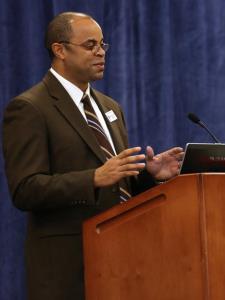Yes, it does happen but not often. It is done when the government eventually admits that it is not up to the job, and that private market forces are better positioned and better equipped, or, that abandoning direct government control is better for the free economy and the public in general. There are two great examples, and both come from the world of aviation.
In 1930, the Postmaster General of the United States called a meeting in which he coordinated old air mail routes and established new transcontinental routes. The airlines themselves were given the opportunity to decide who should service the various airmail routes. As a result, by 1933, United, American, Trans World, and Eastern airlines collected approximately 94 percent of the $19.4 million paid to airlines for airmail service. However by 1934, a Special Senate Committee of Air Mail and Ocean Contracts alleged the existence of airmail cartels. Consequently, President Roosevelt canceled all the airmail contracts and nullified the Kelly Act of 1925, which allowed the airlines to carry air mail. The job of carrying mail was then turned over to the U.S. Army Air Corps, and this was basically, a disaster. The 1933 Army did not have enough modern aircraft, and was untrained and ill-equipped for the task. During this time, passenger and express revenues enabled private airlines to continue operating even though losses were incurred. After two months of poor service and several army pilot deaths, Roosevelt reversed his decision which led to reopened competitive bidding for private airlines to carry airmail once again. To this day, the ability to carry mail still makes a huge difference as to whether an airline is profitable or not.
The other example has to do with airfares for people. In 1938, the government took over control of setting the rates for airfares, as competition between airlines was leading to cut corners, poor maintenance, and crashes. The airlines had to be protected from themselves for their own good, and the public's own good. This resulting government control of airline fares actually worked very well, and each and every airline enjoyed a measure of solid profitability for the next 40 years. No one was allowed to sell a crazy $39 airfare as an example, as airlines were required by the government to charge their actual costs incurred for a ticket on a route, plus a margin of profit set by the government. This made it a fair profitable playing field for every airline. In addition, the government required airlines to each have a fair share of unprofitable routes and to provide service to certain small towns and cities that otherwise would never have received airline service. Overall however, everything was profitable for every airline, and this created the days of spacious airline travel with good food and high quality service. This all ended in 1977 when Jimmy Carter signed into law the deregulation of airfares and it's been a race to the bottom ever since. The thinking was that airfare tickets could be made cheaper and more common everyday people could fly more often. Some members of Congress thought airfares were too expensive overall, and that flying was therefore reserved too much for the elites. They wanted the airlines to be more like a public bus that anyone could afford to hop on, and the thinking was that competition would be the way to do that. And so that is what we have today. Airliners cram twice as many seats into the same space as days of old, customers have become herded, cramped and abusive, and because just about anyone can afford to fly now the overall civility and caliber of people flying is way, way down from what it was prior to 1977. The whole concept of air rage, didn't even exist prior to 1977. I once sat on a flight on a discount airline next to a guy who told me he had slept the night before in a cardboard box under the Los Angeles freeway. This made me wonder a bit as to whether there was such a thing as too low an airfare.
So, is all this progress? It depends on who you ask....
.






